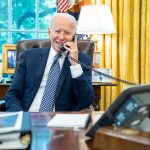The return of Donald Trump to the White House comes with the inevitable circus of Cabinet appointments, and it looks like the Senate is preparing for a marathon of confirmations. Senate Majority Leader John Thune from South Dakota is promising a speedier process than last time, with plans to move “fast and aggressively” on Trump’s nominees ahead of Inauguration Day. But, let’s be honest, navigating Senate confirmation hearings is akin to trying to herd cats—not particularly straightforward.
It took President Biden two whole months to confirm his Cabinet, and Trump’s first nomination round in 2017 was no picnic either, wrapping up three months post-inauguration. Thune is acutely aware that the Democrat-controlled committee landscape can be a minefield, reminiscent of a dreaded game of Minesweeper where the mines are Democrat objections waiting to explode. With high-stakes nominees like Pete Hegseth, who’s facing allegations but insists he’s the picture of virtue, the path to confirmation could be bumpy—all while Democrats hover like vultures.
Incoming Deputy Chief of Staff Stephen Miller gives a glimpse of what’s ahead as President Trump prepares to take office in a week: “More than 100 executive actions will be issued—directing the bureaucracy to transform their approach.” pic.twitter.com/l5kG2dDGa5
— I Meme Therefore I Am 🇺🇸 (@ImMeme0) January 14, 2025
The Senate’s current confirmation game plan hinges on a much-desired “bipartisanship”; a term thrown around in the hallowed halls of Washington almost as frequently as bonus holiday pay gets discussed during a government shutdown. Thune has already struck deals behind closed doors with Senate Democrats about which nominees can roll right in on Inauguration Day without the fuss of objections. Trump’s pick for Secretary of State, Marco Rubio, has proven to be the golden boy in this scenario, managing to charm even some of the Democrats. Call it the “never thought I’d say this” awards—when a Republican nominee earns props from the other side of the aisle.
However, the momentum comes to a grinding halt when considering nominated figures like Tulsi Gabbard, who still has no hearing date scheduled. The delays stem from a plethora of paperwork and background checks from the FBI and other governmental bodies, with some even suggesting that former senatorial tactics have shifted to more extreme measures, like employing private investigators—because why not throw a wrench in a slow-moving machine? Maybe they were gearing up for a reality TV audition.
Senate Republicans are optimistic about pushing through nominees in the national security realm, with important votes looming for candidates like Hegseth. The stakes are high, and confirmation hearings tend to bring out the melodrama—who doesn’t love watching potential Cabinet heads sweat under the bright lights of Senate questioning? It’s like political Theater 101, with a dash of reality TV drama for flavor. So as the confirmation timelines stretch out longer than the waiting list at a trendy brunch spot in D.C., it becomes obvious that the battle isn’t just about skill—it’s also about surviving the political crossfire.
As the Senate gears up for what could be a drawn-out process, one thing is sure: for every trumpeteering Republican, there will be a resistant Democrat ready to hit the brakes. And while the delays can be infuriating, they are a reminder that in the game of politics, it’s not just about winning; it’s about who can endure the longest amidst the chaos. As the confirmation clock ticks, all eyes will be on whether the GOP can turn this slow-moving train around or if they’ll crash and burn before even getting the engine started.




